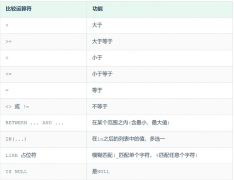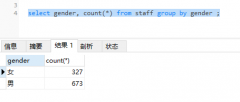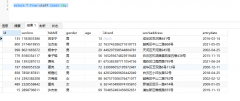Retreive a list of private procedures/functions from a package body(从包体中检索私有过程/函数的列表)
问题描述
我想从包体中获取包含所有私有过程/函数的列表.
I want to obtain a list with all private procedures/functions from a package body.
对于公共对象这很容易,但我不知道如何为私有对象做到这一点.
For public object it is easy but I have no idea how to do that for private objects.
推荐答案
私有函数的本质是它们是私有的.默认情况下没有公开它们的数据字典视图.USER_PROCEDURES 和 USER_ARGUMENTS 仅显示公共过程的信息(在包 spec0 中定义的那些.
The nature of private functions is that they are private. There are no data dictionary views which expose them by default. USER_PROCEDURES and USER_ARGUMENTS only show information for public procedures (the ones defined in a package spec0.
但是,我们可以使用 PL/SCOPE 获取有关它们的信息,但这样做需要一些额外的努力:
However, we can get information about them using PL/SCOPE, but doing so requires a little bit of additional effort:
SQL>更改会话集 plscope_settings='IDENTIFIERS:ALL';SQL>alter package your_package 编译体;
现在您可以通过以下查询找到您的私人程序单元:
Now you can find your private program units with this query:
select ui.type, ui.name, ui.usage_id
from user_identifiers ui
where ui.object_name = 'YOUR_PACKAGE'
and ui.usage = 'DEFINITION'
and ui.type in ('PROCEDURE', 'FUNCTION')
minus
( select 'PROCEDURE', upr.procedure_name
from user_procedures upr
where upr.object_name = 'YOUR_PACKAGE'
union
select 'FUNCTION', uarg.object_name
from user_arguments uarg
where uarg.package_name = 'YOUR_PACKAGE'
and uarg.position = 0
);
要获取私有过程的参数,请将上一个查询中的 USAGE_ID 插入此查询:
To get the arguments of a private procedure plug the USAGE_ID from the previous query into this query:
select ui.name
, ui.type
, ui.usage_id
, ui2.type as param_datatype
from user_identifiers ui
left join user_identifiers ui2
on ui2.usage_context_id = ui.usage_id
where ui.object_name = 'YOUR_PACKAGE'
and ui.usage = 'DECLARATION'
and ui.usage_context_id = :private_proc_usage_id
/
这需要是左连接,因为 user_identifiers 具有标量数据类型(字符、数字、日期、clob)但没有复杂数据类型(xmltype、用户定义类型)的数据类型条目.
This needs to be a left join because user_identifiers has datatype entries for scalar datatypes (character, number, date, clob) but not complex datatypes (xmltype, user-defined types).
我们可以从 PL/SCOPE 中获得大量有关过程的信息,尽管它不像查询 USER_PROCEDURES 或 USER_ARGUMENTS 那样简单(事实上,它非常笨拙).了解更多.请注意,PL/SCOPE 数据存储在 SYSAUX 表空间中,因此不要与 DBA 陷入困境!
We can get lots of information about procedures from PL/SCOPE, even though it is not as easy as querying USER_PROCEDURES or USER_ARGUMENTS (in fact, it is surprisingly clunky). Find out more. Be aware that PL/SCOPE data is stored on the SYSAUX tablespace, so don't get into hot water with your DBA!
这篇关于从包体中检索私有过程/函数的列表的文章就介绍到这了,希望我们推荐的答案对大家有所帮助,也希望大家多多支持编程学习网!
本文标题为:从包体中检索私有过程/函数的列表


- 以一个值为轴心,但将一行上的数据按另一行分组? 2022-01-01
- 更改自动增量起始编号? 2021-01-01
- SQL 临时表问题 2022-01-01
- 导入具有可变标题的 Excel 文件 2021-01-01
- 如何使用 pip 安装 Python MySQLdb 模块? 2021-01-01
- 远程 mySQL 连接抛出“无法使用旧的不安全身份验证连接到 MySQL 4.1+"来自 XAMPP 的错误 2022-01-01
- 在SQL中,如何为每个组选择前2行 2021-01-01
- 如何将 SonarQube 6.7 从 MySQL 迁移到 postgresql 2022-01-01
- 使用 Oracle PL/SQL developer 生成测试数据 2021-01-01
- 如何将 Byte[] 插入 SQL Server VARBINARY 列 2021-01-01









